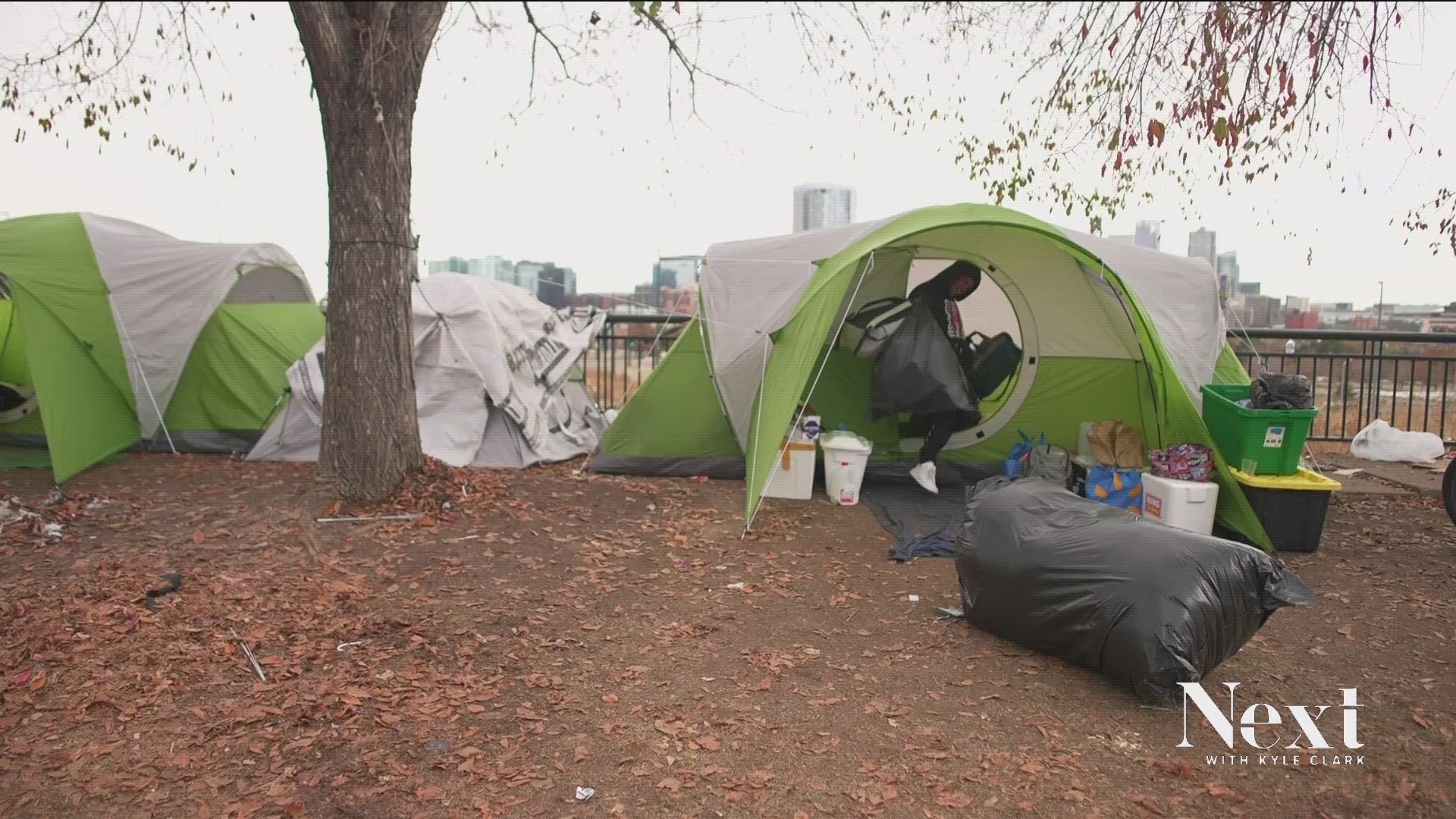DENVER — Most migrants don't imagine living on the streets when they plan to arrive in the United States, but several find it's the only option when their shelter stays in Denver time out.
Migrants had set up about 15 tents at a homeless encampment on Zuni Street in Denver. Most had been staying at a nearby shelter when their shelter time expired. Families can stay for 37 days, and single adults can stay for 14 days.
Originally from Venezuela, Jeremi stayed in the shelter, but later found himself with a tent and mattress at the encampment. He had been there for over 15 days when he first learned Wednesday that he would have to move.
"Honestly, we don't really know what is happening," Jeremi said after rangers and police showed up, handing out garbage bags to put their possessions in.

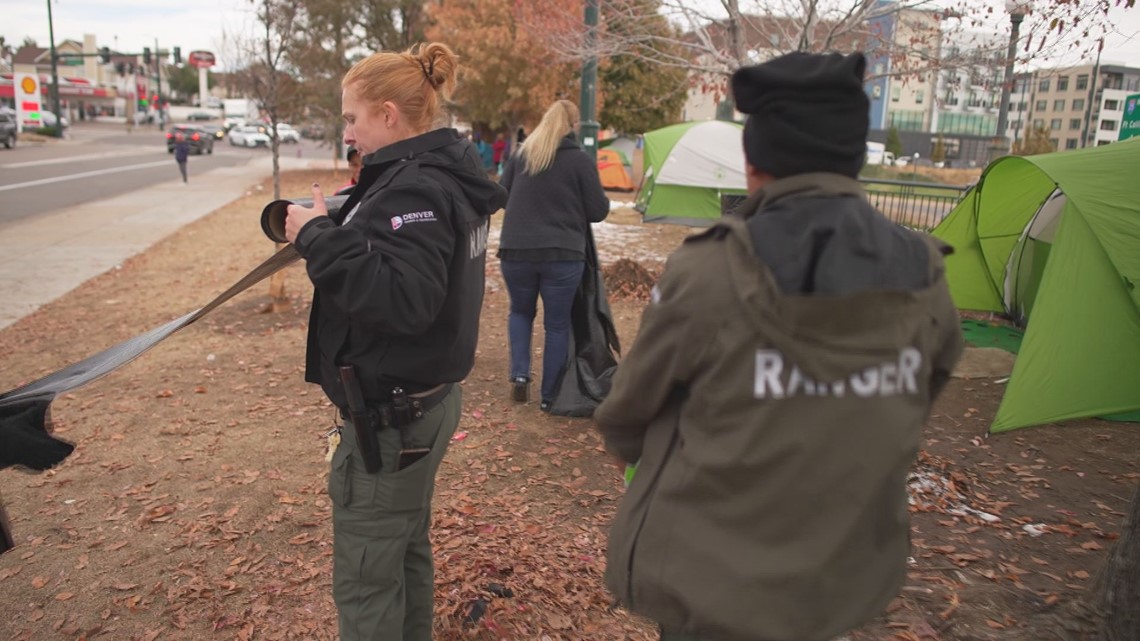
The land they were camping on belongs to Denver Parks and Recreation. Because it is not public land, there is no overnight camping allowed. Without any posted signs, the migrants said they had been there for so long they didn't know there was any kind of issue.
"They told us to get out of here from the street to go [back] to the street. They are not doing anything. They are not giving us explanations why," Jeremi said.
Most migrants say they were in the same position. They were only notified in the moments after rangers and police arrived. One migrant said he learned the day before from the Homeless Outreach team with Denver Police.
"They have never given use information about anything," Jeremi said.
Homeless advocates say the protocol for this kind of sweep shouldn't necessarily be different because of the type of land they were on.
"This is an enforcement action on our migrant population where they have kicked them out of the hotel and the next day, they are in violation of the camping ban," said Amy Beck, who works to help the unhoused community who find themselves on the streets.

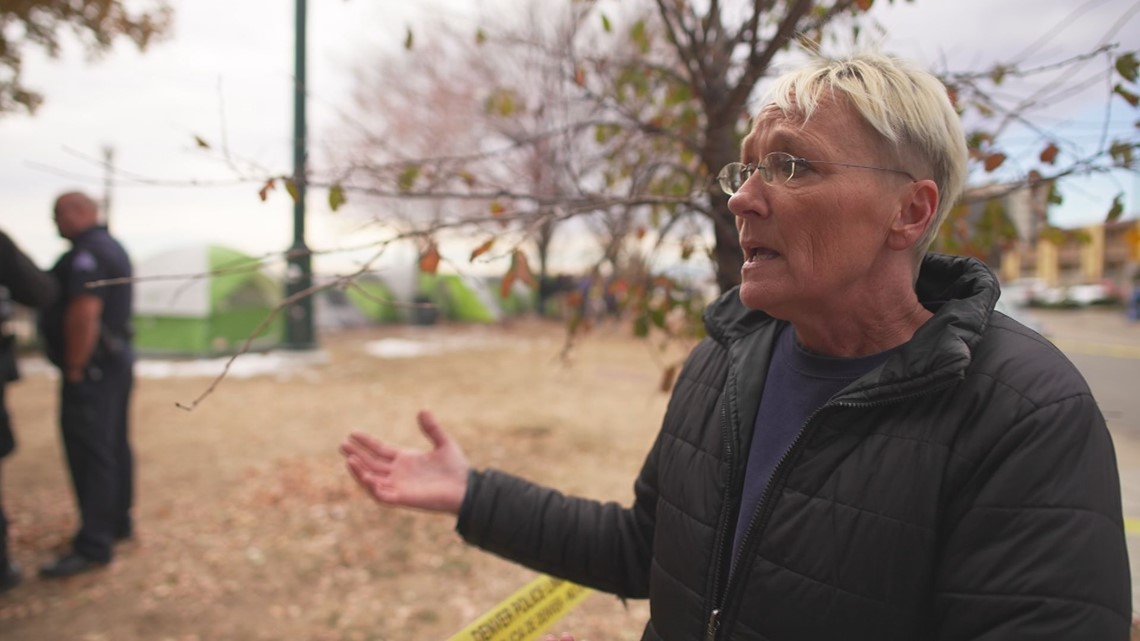
City officials say the shelter system is strained, with thousands of migrants currently in shelters and more arriving every day. About 2,000 are currently in partner shelters like hotels.
"We have to got to stop and find a better solution and put people indoors. We have families. We have small children and infants that are living in this encampment," Beck said.
Other migrants who are in shelters right now saw the chaos and wondered if they, too, would struggle to find a space outside to sleep while they are transitioning to finding housing.
"It can also happen to me, because by moving me from where I am, I will have to sleep on the street," said Ramon, whose time will be up in the shelter within the next week or so. "They are Venezuelans just like me. We are all human beings. We all suffer. We all want support."

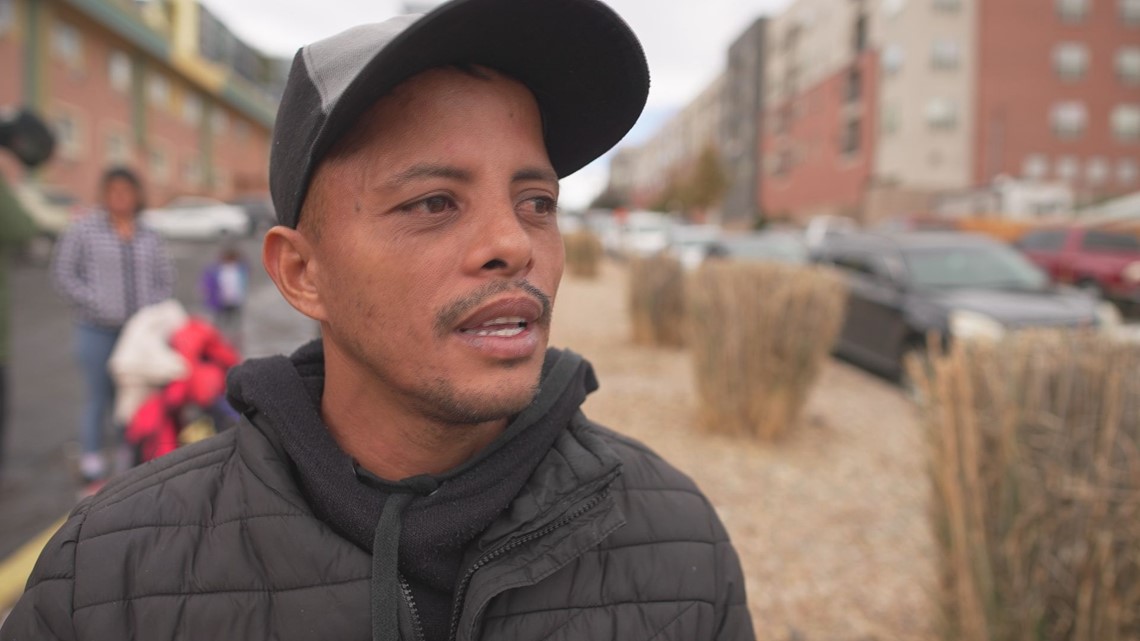
The migrants who were at the encampment are now in the right-of-way around the corner, about half a block away from the original location.
"They have their reasons and those are things they have to respect," said Jeremi, knowing more people will be forced to leave the shelter when their time is up. "This is going to get more crowded every time. Every time, [there will be] more people."

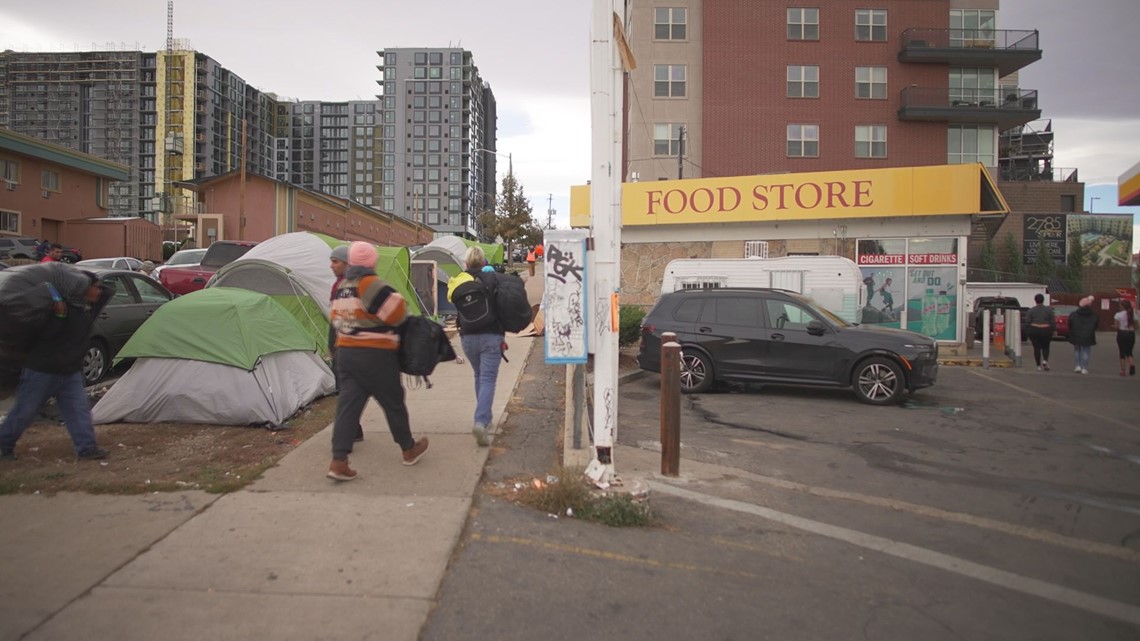
A statement from the mayor's office reads:
Mayor Johnston and his administration are aware of a potential encampment closure on park land near Zuni Street and Speer Boulevard. Camping is not allowed on Denver Parks & Rec property, which this encampment is on. We have also noted open fires as well as other health and safety concerns. Notice was provided to those in the encampment and the city is working with nonprofits and service providers to help provide resources. Denver has taken great care to take care of people who arrive here with virtually nothing, however, we cannot do it on our own. Our city’s resources, shelter space, staffing and financial capacity are not infinite.
This is why Mayor Mike Johnston is heading to Washington, D.C. to speak with White House, Congressional, and Administration leadership about our efforts and to request urgent support from the Federal government. It is imperative that we help those seeking refuge, not only by providing asylum and a place to be, but also by expediting work authorizations and coordinating with cities across the country.
The Johnston Administration is working around the clock to support new arrivals. We provide 37 days of shelter to families with children and 14 days to adults with no kids. And during extreme winter weather, we extend those stays even longer, like we did over the weekend and early this week. When people are in our shelters, we work with partners to help them develop a plan. We connect them with several nonprofits that provide case management, resource navigation and housing assistance. City teams have been working closely with the group camped near Zuni and Speer for weeks and we will continue to do so to the best of our ability.
More from Angeline McCall:
SUGGESTED VIDEOS: Next with Kyle Clark

